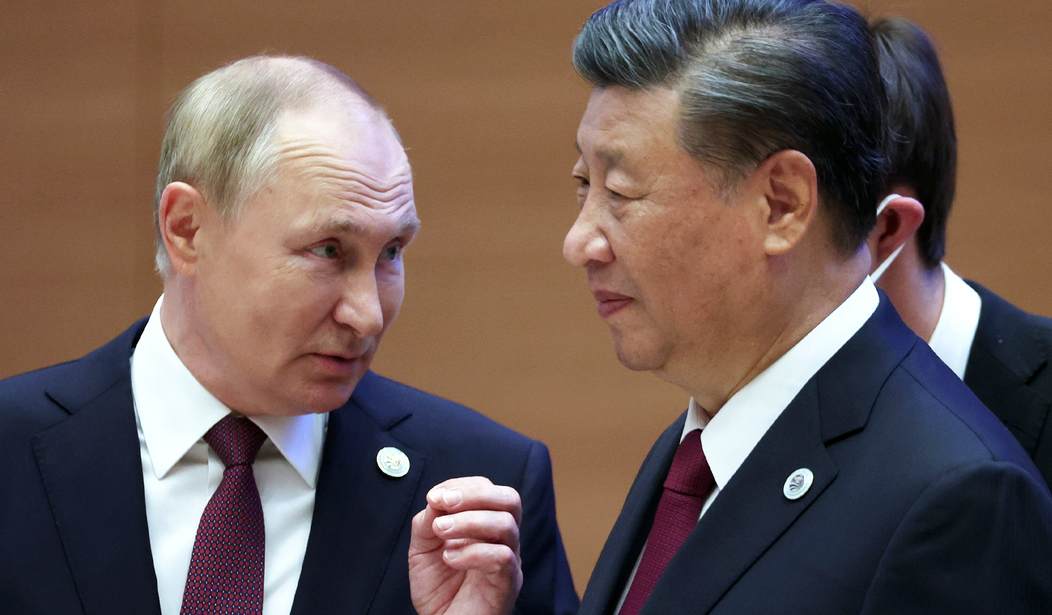The good news is that China has brokered a peace agreement. (Everyone is supposed to support peace over war, right?) But it's not an agreement between Israel and Gaza. It's not even a deal between Ukraine and Russia, though China now has enough influence over Russia that they should be able to do so if they want. No, this is a peace agreement between Hamas and Fatah, the two primary Palestinian factions that have been at odds for decades. The world is all too familiar with Hamas by this point, with its current remnants being all that remains of the official government of the Gaza Strip. Fatah (formerly the Palestinian National Liberation Movement) is the party of Mahmoud Abbas and largely represents the Palestinians in the West Bank. If this tentative peace agreement sounds like good news to you, rest assured that it's not. (Associated Press)
Palestinian factions Hamas and Fatah signed a declaration in Beijing on ending a yearslong rift, the groups said Tuesday, taking a step toward resolving a deep divide which has lingered for years despite repeated attempts at unifying the sides.
The two heavyweights of Palestinian politics signed the Beijing Declaration on “ending division and strengthening Palestinian unity,” according to Chinese state broadcaster CCTV, pledging to form a unity government for the Palestinian territories. But previous such declarations have failed, including a similar deal in 2011, casting doubt over whether the China-sponsored negotiations might actually lead to a resolution.
The declaration comes at a sensitive time, as the war in Gaza rages on into its 10th month and as Israel and Hamas are weighing an internationally backed cease-fire proposal that would wind down the war and free dozens of Israeli hostages held by Hamas.
There is no guarantee that this peace agreement will hold up or be honored by the majority of Palestinians from either party. Similar agreements have been made in the past couple of decades and they have all fallen apart rather rapidly. But the war in Gaza has changed the situation in many ways and deadly conflicts, just as with politics sometimes make for strange bedfellows. It's not totally inconceivable that they might be ready to bury the hatchet, at least for the foreseeable future, in the interest of securing themselves against a common set of enemies.
So why would any sort of peace agreement between the rival factions be problematic? Primarily because the ongoing conflict between Hamas and Fatah has proven beneficial to Israel in multiple ways. The two groups haven't been technically at war with each other, though Hamas does launch the occasional attack against the West Bank. But the two factions have been bitter rivals ever since Hamas was elected to govern the Gaza Strip in 2007, almost immediately after which they launched a purge of the region, eliminating most of Fatah's people in the process.
Keeping the two parties divided and at each other's throats has allowed Israel a measure of peace compared to what they would be facing if all of the Palestinians were united against them. Hamas has consistently refused to recognize Israel's right to exist and launched attacks against them, culminating in the October 7 terror attacks. Fatah still opposes the presence of Israel in the region but has been willing to negotiate and mostly - though not always - attempted to maintain some semblance of peace in the West Bank. It's an imperfect situation to put it mildly, but it was better than the alternative.
Any sort of serious peace and kinship between Fatah and Hamas could also complicate the ongoing plans for peace and what to do about the Gaza Strip after the war. For more than a year, the Palestinian Authority firmly stated that they wanted no responsibility for governing the Strip after the war. But some of their leaders recently seemed to relent a bit and showed an interest in a three-stage solution where they would be part of a coalition government in Gaza. Hamas has rejected that idea entirely. But if they are now coming into alignment because of China's negotiations, that type of plan could move forward. Rather than destroying Hamas entirely as Israel has vowed to do, they could wind up handing at least some of the control of the Strip right back to the remnants of Hamas. This is far from ideal.
With that in mind, we have every right to question China's motivation for negotiating this peace agreement. There is no direct benefit to Beijing because neither Hamas nor Fatah would be a beneficial trade partner for China, nor would they offer much in the way of a military ally. But China is clearly siding against Israel in most ways. Making Israel's enemy stronger is probably seen as the next best thing to wading in and attacking Israel themselves.








Join the conversation as a VIP Member